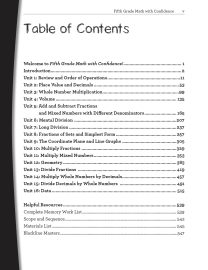
On my Virginia farm, I raise livestock; lambs and kids born on the same date rarely clock in at the same size, wean themselves, or eat the same amount of hay and grain on any given day. Daffodils bloom, baby birds fly, and puppies stop chewing on chair rungs when they’re ready—not when the calendar dictates.
But we generally don’t extend this same consideration to our children. We’ve been so conditioned to accept the pattern of infancy, toddler, preschool, elementary, middle, high school, college that it’s almost impossible for us to break out of it and think: What makes me think that this tiny human being should mature on the exact same schedule as the rest of the tiny human beings born at the same time?
The common-sense answer is: Nothing convincing.
It is far too easy for us to consider the speed with which our children march through the grades as some sort of natural measure of their intelligence. In fact, we consider fast movement through the grades to be a positive good: Fast means smart.
Thank carefully about this assumption. It makes speed to be a positive good–when, in fact, it should be morally neutral. I’ve written about this elsewhere—most recently, while debunking the value of speed-reading in The Well-Educated Mind:
The idea that fast reading is good reading is a twentieth-century weed, springing out of the stony farmland cultivated by the computer manufacturers. As Kirkpatrick Sale has eloquently pointed out, every technology has its own internal ethical system. Steam technology made size a virtue. In the computerized world, faster is better, and speed is the highest virtue of all. When there is a flood of knowledge to be assimilated, the conduits had better flow fast.
Our general approach to life is too often shaped by the combined factory-computer ethic: More and faster is better.
Think about how you refer to the computers in your house. The fast computer is the “good” one; the old slow one is the “bad” one that no one wants to use. Or the checkout line at the grocer store: the bad line is the slow one. I’m not suggesting that speed is completely unimportant, particularly if you need to get your groceries bought before dinner, but the ease with which we assigning the morally loaded words “good” and “bad” to a span of time should give you pause.
Now circle back to the child who is maturing at her own perfectly normal rate, but has been slotted into our Prussian age-grading system. As parents, we too often take pride in our children working “above” grade level—assuming that the faster you move through the grades, the more accomplished the child is. (In fact, in many home schooling circles, graduating a child at fifteen or sixteen and sending them off to college early has become a validation of how well the parents have done their job.)
Worse than that, we manage to convey a very clear message to our children that if they do not advance through the grades at the correct ages, they are “slow,” behind, failures. Even when it is perfectly clear that a child needs some extra time to mature and to master fundamentals, we feel that providing them with that time risks separating them from friends, giving them a sense of failure, putting them “behind.” Slow, like fast, becomes a moral judgement–an evaluation of the child’s worth–rather than a simple measure of maturity.
What are the signs of a maturity mismatch between a child and a grade level?
The prime symptom of immaturity is nonverbal frustration. A child who weeps, or resists but won’t say why, or slouches and refuses to make eye contact, is signaling that something is wrong—but cannot articulate what it is. Children confronted with work that is too advanced for them are usually incapable of saying, “I’m sorry, but this is developmentally inappropriate and my mind isn’t yet able to grasp it.” In fact, a child who says, “This is too hard!” is probably actually working at close to grade level, because she’s able to understand the task even if it’s difficult. The child who just bursts into tears isn’t ready to do the work in front of her. She can’t yet comprehend how to do it, or find a way into the task.
A child who is working right at the top level of his maturity can also be derailed by physical factors—allergies or a bad case of flu, suddenly expending a lot of physical energy in a new sport, puberty. What was once difficult suddenly becomes impossible. If a child stalls or begins to go backwards with work that had previously been doable, consider that he might be bumping up against a maturity ceiling.
And remember that abilities doesn’t develop evenly in children, any more than their bodies grow at an even rate. In our highly structured school system, students are expected to be at grade level in math, science, reading, and writing. But these require very different thinking skills, and it is far more common for students to be working at two or more grade levels across the curriculum. It is normal for a fifth-grade aged student to be writing at a third grade level, reading at a fifth grade level, and doing math at a seventh grade level. A child who prospers at two subjects and cries over the third may still be showing immaturity—and the answer may be to drop back to a lower level in only the third subject.
When learning stalls, particularly if it’s across the board, always consider evaluation by a learning specialist. But in many cases, a child who’s struggling simply needs the earth to circle the sun one more time.
If there’s a mismatch, what strategies can you use? (Click the link to go to Part 2 of this article.)
Recommended Products
-

Juneteenth Booklist & Activities
0 out of 5$0.00 Add to cart -


Fifth Grade Math with Confidence Instructor Guide
0 out of 5Starting at:$36.95Original price was: $36.95.$27.71Current price is: $27.71. Select options -
Sale!

Hansel & Gretel and Other Stories: Downloadable MP3
0 out of 5$12.95Original price was: $12.95.$9.71Current price is: $9.71. Add to cart -
Sale!

Dorothy and the Wizard in Oz: Downloadable MP3
0 out of 5$25.95Original price was: $25.95.$19.46Current price is: $19.46. Add to cart -
 Sale!
Sale!

Fifth Grade Math with Confidence Student Workbook B
0 out of 5$16.46 – $21.56 Select options This product has multiple variants. The options may be chosen on the product page -
 Sale!
Sale!

Fifth Grade Math with Confidence Student Workbook A
0 out of 5$16.46 – $21.56 Select options This product has multiple variants. The options may be chosen on the product page
ABOUT THE AUTHOR
Susan Wise Bauer
Join over 100,000 homeschooling families
For the latest offers, educational insights, products and more.
By joining you agree to our privacy policy.


















4 thoughts on “Maturity & The Real Child, Part I: The Problem With Ages and Grades”
I agree…but just how do you convince your child (especially in the teen years) that it is perfectly ok for her to not be on the same schedule as her public school friends? How do you keep her from feeling like she is behind, or is a failure, if she is not ready to take SATs, or apply to colleges, when all of her friends are?
Thank you for asking this, Brenda. I have the same questions. 🙂
Karen
It’s a difficult problem and there’s not one single solution.
Sometimes it helps to adjust family culture. Be very honest with yourself. Are *you* showing disappointment or any sense of impatience with the child’s progress?
Are there areas in your own life in which you can demonstrate that *you* are not keeping up with your peers, and that it doesn’t bother you in the slightest? (You’re in beginner yoga and your neighbor is much further ahead…or you’re working with a much younger team at work but it doesn’t matter…)
Can you point the child to examples of late bloomers? I love what this piece (http://www.refinery29.com/2013/07/50115/famous-late-bloomers) says: “In reality, most human beings don’t come into their own until their 20s are a fading memory (wildly talented, mega-famous ones included)!” Be sure to read Malcolm Gladwell’s piece too: http://www.newyorker.com/magazine/2008/10/20/late-bloomers-malcolm-gladwell
Can you consciously engage the child in mixed age groups–community theater, for example, or volunteer opportunities, or clubs–that span age groups? Many of these are made up of participants who are high school through senior citizen age. As long as the child’s primary social outlets are *all* composed of teens, it will be hard for her to take a wider view.
In the end, you have to do what is best for the child’s *long-term* success, not short-term contentment. That’s part of the parent’s job–to take the long view, because the child is too immature to do so.
Maybe some other parents will chime in with thoughts?
I had the same problem with my daughter who was 11 years old at that time – she did not want to be “behind” her friends, who went to school and some were 2 years older. So we set up a goal to upgrade her until her “official grade”. It took us 2 years of wark, she studied even during summer vacations, she is now 13 and she does most of her subject at her grade level. I don’t know if she feels better in being the same level as her peers, but she certaily feels great in being able to accomplish her goal. Me, as a parent, I try to challenge my daughter with great books, mostly nonfiction, give her more then what she would learn at school. So even if she is “behind” in something, she is certainly not loosing her time, because she learns a wide range of things and can go as deep in the subject as she wants. So even her much older kids enjoy her company – she has a strong character. So it is important to challenge our kids, and not just trying to ” grasp the gaps”. Every child has his own week points, and strong ones, and that’s what matter. Teenagers mostly whant to know who you really are, and not whay grades you have. So it is all about knowledge, and not about grades.